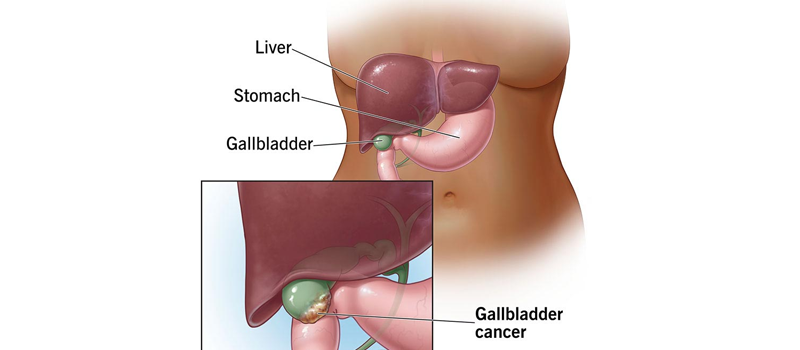
Gallbladder cancer is an abnormal growth of cells that begins in the gallbladder. Your gallbladder is a small, pear-shaped organ on the right side of your abdomen, just beneath your liver. The gallbladder stores bile, a digestive fluid produced by your liver. Gallbladder cancer is uncommon. When gallbladder cancer is discovered at its earliest stages, the chance for a cure is very good. But most gallbladder cancers are discovered at a late stage, when the prognosis is often very poor. Gallbladder cancer may not be discovered until it's advanced because it often causes no specific signs or symptoms. Also, the relatively hidden nature of the gallbladder makes it easier for gallbladder cancer to grow without being detected.
Gallbladder cancer signs and symptoms may include:
It's not clear what causes gallbladder cancer. Doctors know that gallbladder cancer forms when healthy gallbladder cells develop changes (mutations) in their DNA. A cell's DNA contains the instructions that tell a cell what to do. The changes tell the cells to grow out of control and to continue living when other cells would normally die. The accumulating cells form a tumor that can grow beyond the gallbladder and spread to other areas of the body.
Most gallbladder cancer begins in the glandular cells that line the inner surface of the gallbladder. Gallbladder cancer that begins in this type of cell is called adenocarcinoma. This term refers to the way the cancer cells appear when examined under a microscope.
Factors that can increase the risk of gallbladder cancer include: